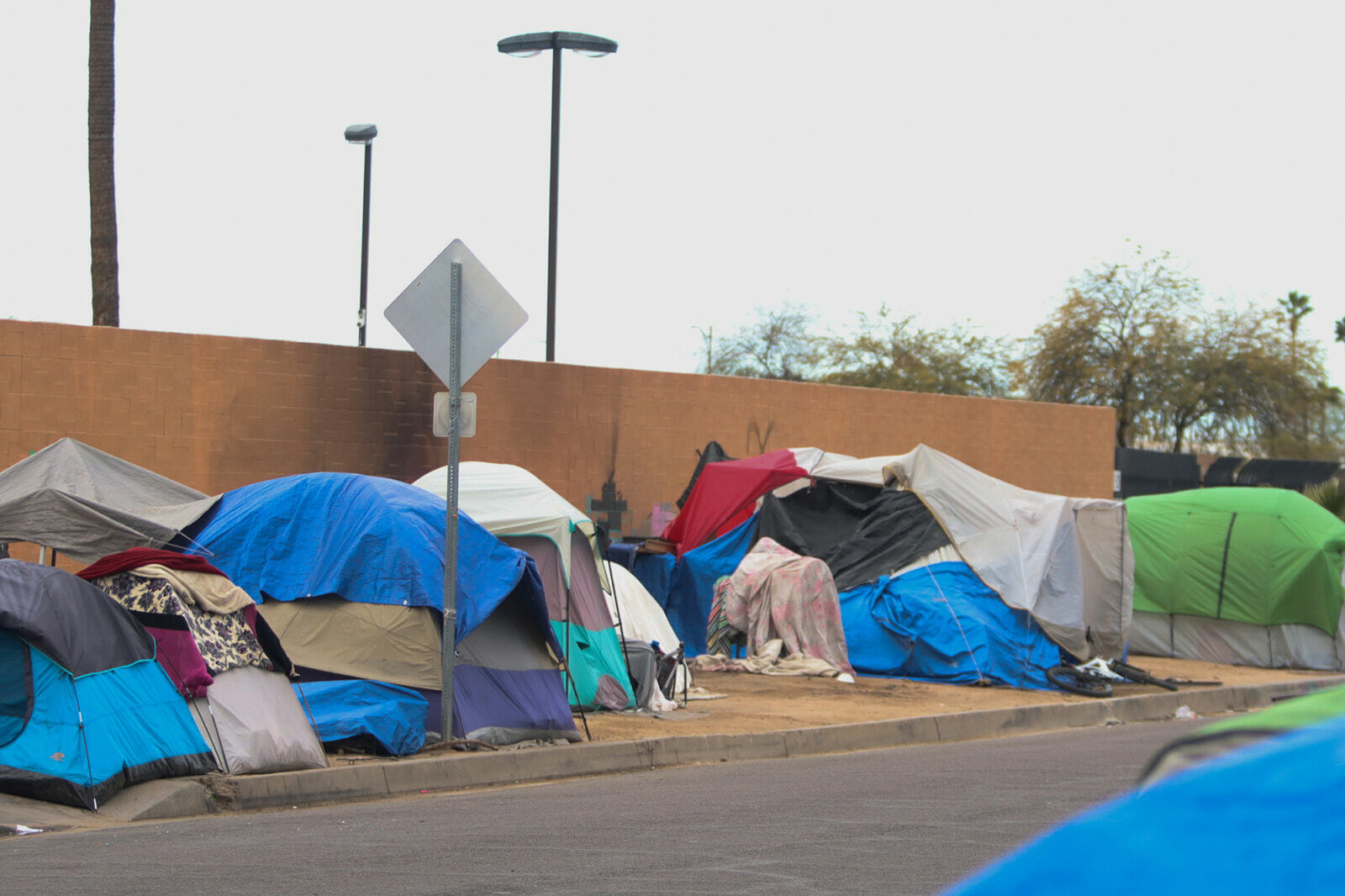A Maricopa County judge found that the city of Phoenix is maintaining an illegal “public nuisance” by encouraging a population of over 1,000 homeless people to reside in tents in a vast swath of downtown referred to as “The Zone.” The decision, a preliminary ruling in a case brought against the city by law-abiding property and business owners in the area, finds that the city has “intentionally stopped—or at least materially decreased—enforcement of criminal, health, and other quality of life statutes and ordinances in [T]he Zone,” effectively making it “off-limits to [law] enforcement.” In fact, the city has not only declined to enforce laws against public defecation and urination, drug use, and even violence, but it has regularly transported people to The Zone to live there indefinitely. And those actions, the court said in its 23-page ruling, constitute an illegal “public nuisance,” which the city has until July 10 to eliminate.
DEEPER DIVE: Homeless encampments would be torn down, people charged under Arizona Senate bill
Throughout the lawsuit, Phoenix officials have rationalized their refusal to enforce the law by claiming their hands are tied by the Ninth Circuit’s 2019 ruling in Martin v. City of Boise, in which the court held that it’s “cruel and unusual punishment” to arrest people for “involuntarily” sleeping on the streets. Since “human beings are biologically compelled to rest,” the Ninth Circuit declared, punishing people for “involuntarily sitting, lying, and sleeping in public” was cruel—like punishing them for “an illness or disease.”
But that case has little to do with the Phoenix homeless “Zone,” where people have been permitted to live indefinitely on the streets—even when they refuse to accept room in a homeless shelter. In fact, the ruling rebuked Phoenix for its “glaring misinterpretation” of the Martin decision. The “most glaring” example of that misreading, the court said, “is in the inference that anyone who has erected a tent or other structure in the public rights of way is intrinsically unable to otherwise obtain shelter.” Such a notion is nonsense: people can choose alternatives, and in fact virtually all of the people now residing in The Zone are not there because they are “biologically compelled” to be. What’s more, even if its interpretation of the Martin decision were correct, “the city could readily [fix the problem] through the creation of structured campgrounds. But the city has refused to pursue this viable, cost-effective option despite admitting its viability.”
Particularly significant was the court’s emphasis on environmental pollution in The Zone, which was the subject of the Goldwater Institute’s friend-of-the-court brief supporting the business and property owners. “The Zone has evolved into a serious environmental nuisance—a biohazard,” the judge declared. “Homeless individuals defecate and urinate in the open on the streets, sidewalks, lawns, and buildings. Property owners are forced to clean up the human waste each day.” And when this waste is washed into the storm drains, “that discharge ends up in the rivers, washes, and retention basins of the state.” Not only does it violate Arizona law to commit such pollution, but it’s expressly illegal for the city to allow it—yet the city has consistently refused to act.
The judge’s ruling offers hope not just for the homeless themselves—who, after all, don’t deserve to be left in a ghettoized section of the city’s roads—but to the ignored small-business owners in the area, who are forced to try to earn a living in the midst of such chaos. Their tax dollars are supposed to pay the city for police services to protect their rights; instead, their rights have been disregarded by a city policy that allows homeless people—many of them mentally ill or addicted to drugs—to scare away their customers, assault their employees, and pollute their property. The decision will not cure the problem overnight, but it is a welcome and long-overdue first step.
You can read the judge’s ruling here.
Author: Timothy Sandefur is the Vice President for Legal Affairs at the Goldwater Institute.



